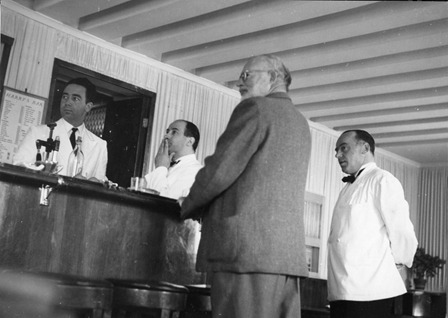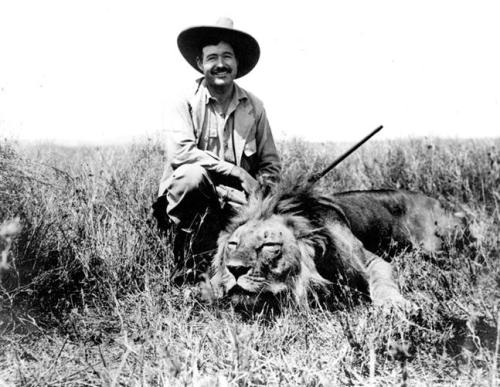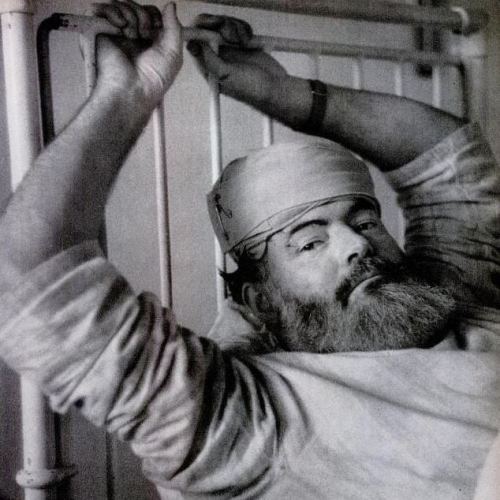Interesting little clip.

Another rare shot of Hemingway…this time at Harry’s Bar in Venice, Italy. Circa 1949.
Hemingway on writing…
The most essential gift for a good writer is a built-in, shockproof, shit detector. This is the writer’s radar and all great writers have had it.
Ernest Hemingway in the Paris Review interview.
Ernest Hemingway, The Paris Review Interview
Classic interview by George Plimpton on the art of fiction Hemingway style.


